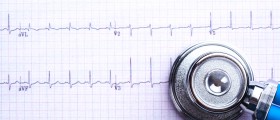Hello everyone. When I was at the regular examination of my heart a couple of days ago, my doctor told me that he sees something and that I need to come again. So I took the vacation and I will be off from my work as long as its needed to find out what is going on. Next day I went to see him and he told me that I have coronary artery anomaly. He was not concerned when he was telling me this, so I was not concerned as well. But I found out at some forum that this artery can lead to death. Is it true?
Loading...
Hi Evan,
It depends upon the anomaly as to whether it can lead to death.
Your doctor should provide you with MUCH more information or refer you to someone that can.
We can't speculate without knowing what your doctors have seen.
Good luck.
Loading...
Loading...
Hello there Evan.
I support everything that medic – dan told you. You should really listen to him because he is an experienced one. I will tell you that this depends on how hard this situation is as well.
But basically, yes.
It can lead to death, if not it can lead to trauma as well. I am sure that coronary artery anomalies are a cause of sudden death in young athletes in the absence of additional heart abnormalities. This is a condition that you need to observe and you need to be in constant touch with your doctors about it.
Loading...
Hey Evan,
A coronary artery anomaly (CAA) is a defect in one or more of the coronary arteries of the heart. The defect is congenital (present at birth). CAAs may relate to the origin (where the artery "springs up" in the heart) or the location of the coronary artery. However, the term CAA can be used to describe any defects in a coronary artery, such as an abnormal size or shape. They are often found in patients with other congenital heart diseases.
Now that I told you this, you do realize that it is a congenital thing, so I have to tell you that you have a bad doctor.
Loading...
He doesn't necessarily have a bad doctor, Adria. Sometimes doctors find out that people have a coronary artery anomaly right when they are supposed to do a surgery or a procedure on this person.
Some congenital heart diseases are strongly linked to CAAs, including persistent truncus arteriosus,transposition of the great arteries, pulmonary valve atresia, double outlet right ventricle (DORV), and tetralogy of Fallot. Some studies have shown that certain types of CAAs can run in families, but doctors have not yet found a solid pattern to say for sure that CAAs may be hereditary. Coronary artery anomalies are found in about 5% of people who undergo cardiac catheterization to find out why they are having chest pain.
Loading...
Loading...
This can indeed lead to death like Jonathan wrote above, and in a lot of cases it does, but it is mostly in cases where people don't even know that they had it so it was left untreated.
Adria is wrong, at least she can't say that you have a bad doctor because of this matter, this is rarely noticed in early ages even though it is a congenital disease. Some people die without knowing that they had a coronary artery anomaly. I can only wish you best of luck and suggest to you that you follow the treatment that your doctor is going to set for you.
Loading...
Hey guys. It can unfortunately. It happened to my older colleague from my job. She was 47 years old when she passed away. But she was not that concerned when they told her about her diagnose. She was taking her therapy but not like her doctor prescribed to her. She was taking this therapy when she remembered that she should take it. Unfortunately, she passed away 2 years ago and I am still wondering what she could done to prevent this? Well, obviously a lot of things but she didn't. So, yes coronary artery anomaly can lead to death. Take care of yourself.
Loading...
















